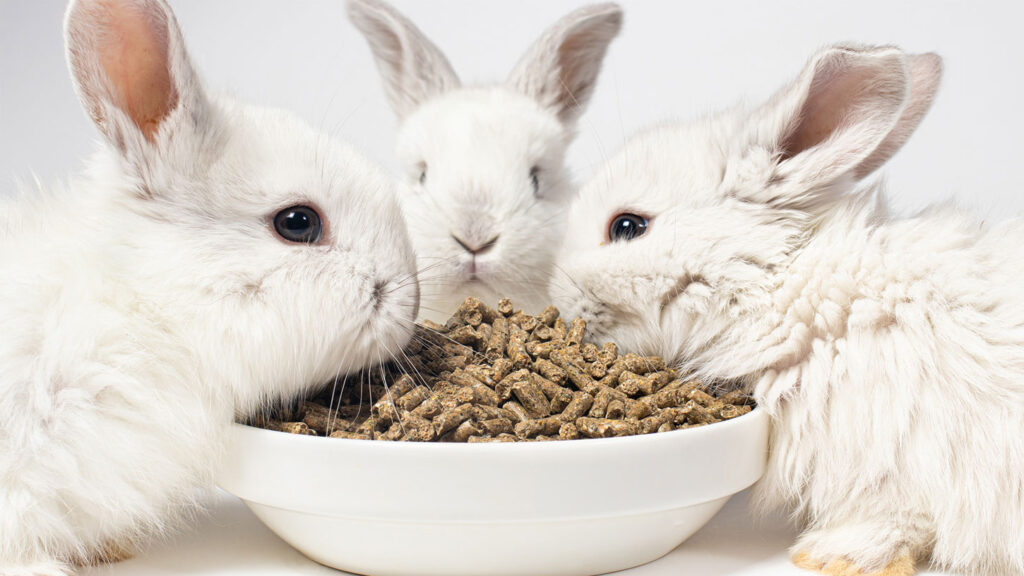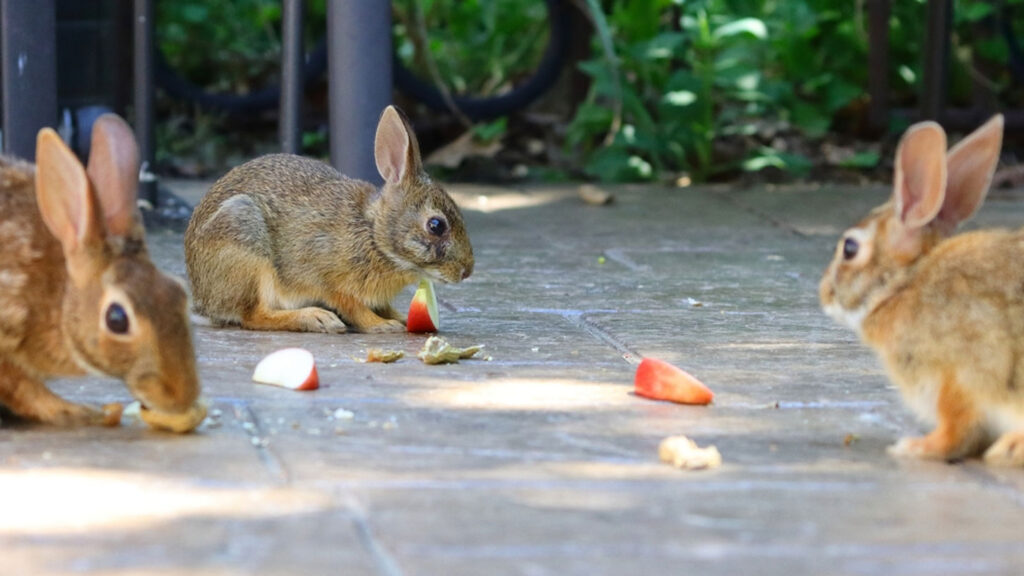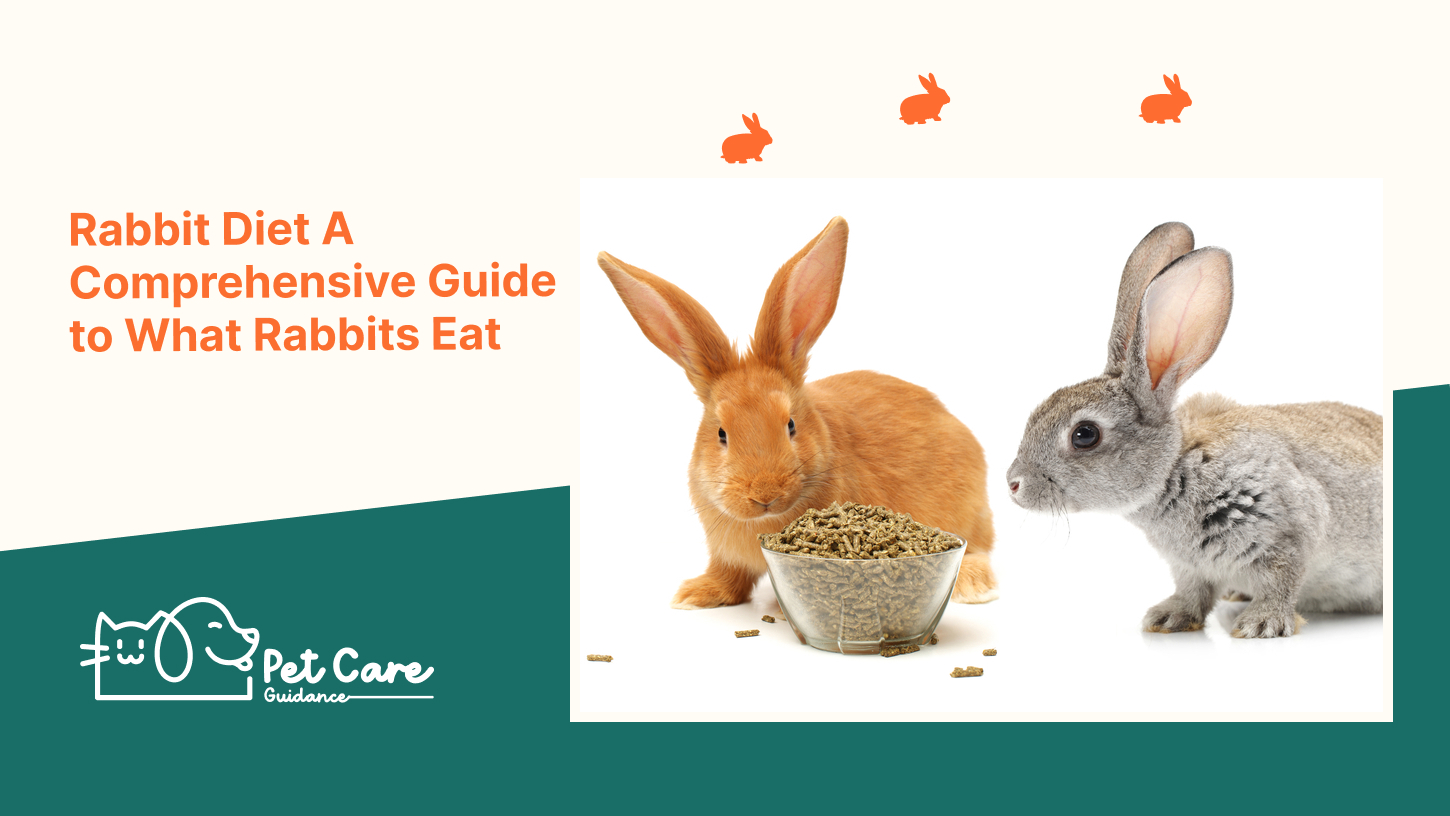Rabbits should primarily consume hay and grass daily, along with a variety of leafy greens. Additionally, they can be fed a small amount of pellets and limited treats for a healthy and balanced diet.
It’s important to provide them with fresh water daily as well. Offering a mix of hay, fresh greens, and a few pellets ensures that rabbits receive the necessary nutrients for their well-being. A rabbit’s diet should prioritize high-quality grass hay such as Timothy, orchard, or brome, as it forms the bulk of their daily intake.
By following these guidelines, you can ensure that your rabbit stays healthy and happy.
Importance Of A Healthy Rabbit Diet
Rabbits should have a daily diet of mostly hay, a smaller amount of fresh vegetables, and a limited number of pellets. Hay is the most important part of a rabbit’s daily intake. Unlimited, high-quality grass hay, such as Timothy, orchard, or brome, should make up the bulk of a rabbit’s diet. Along with hay, rabbits should also be given a variety of leafy greens daily. This can include options such as spinach, kale, parsley, and cilantro.
In addition to hay and greens, rabbits should have access to fresh, clean water at all times. It is important to note that rabbits have sensitive digestive systems, so introducing new foods should be done gradually to prevent any digestive upset. A healthy rabbit diet is essential for their overall health and well-being.
The Key Components Of A Rabbit’S Diet
Rabbits have a specific and unique dietary requirement. The key components of a rabbit’s diet are hay, fresh vegetables, and pellets.
**Hay** is the foundation of a rabbit’s diet and should make up the majority of their daily intake. It is essential for their digestive system and helps maintain healthy teeth. Rabbits should have a constant supply of fresh hay available.
**Fresh vegetables** are a crucial source of nutrients for rabbits. They should be introduced gradually, starting with small amounts and increasing over time. Leafy greens like kale, spinach, and parsley are good options. It’s important to provide a variety of vegetables to ensure a balanced diet.
**Pellets** supplement the diet with high-quality rabbit food. Look for pellets that contain a high fiber content and are free from added sugars or fillers. They should be given in moderation, as a supplement to hay and vegetables.
Remember to always provide fresh, clean water for your rabbit. Avoid feeding them foods that are toxic or harmful, such as avocado, iceberg lettuce, rhubarb, and garlic.
By incorporating these key components into your rabbit’s diet, you can ensure they are getting the nutrition they need to thrive.

Rabbit Diet
The importance of hay in a rabbit’s digestive system:
- Different types of hay and their benefits
- Daily recommended amount of hay for rabbits
Rabbits should have a daily diet of mostly hay, a smaller amount of fresh vegetables, and a limited number of pellets. Hay is the most important part of a rabbit’s daily intake. Unlimited, high-quality grass hay, such as Timothy, orchard, or brome, should make up the bulk of a rabbit’s diet. Hay provides essential fiber that aids in maintaining healthy digestion, prevents teeth problems, and helps wear down their constantly growing teeth.
There are different types of hay available for rabbits, including Timothy hay, Orchard grass hay, and Alfalfa hay. Each type has its own benefits, and it’s recommended to provide a variety to ensure a well-rounded diet.
Rabbits usually require about one ounce of hay per pound of body weight per day. This means that a five-pound rabbit would need around five ounces of hay daily. It’s essential to have a constant supply of fresh hay available for your rabbit to graze on throughout the day and night.
Nutritious Fresh Vegetables For Rabbits
The significance of fresh vegetables in a rabbit’s diet
Rabbits benefit greatly from incorporating fresh vegetables into their diet. Fresh vegetables provide essential vitamins, minerals, and fiber that are crucial for a rabbit’s overall health. Some safe and nutritious vegetables for rabbits include bell peppers, bok choy, Brussels sprouts, carrot tops, cucumber, endive, escarole, and fennel. These vegetables offer a variety of flavors and textures, ensuring that rabbits receive a well-rounded diet.
It is important to provide daily recommended servings of vegetables to ensure rabbits receive enough nutrients. The exact amount depends on the rabbit’s size and weight, so it is recommended to consult with a veterinarian to determine the appropriate serving size for your rabbit. By incorporating fresh vegetables into their diet, rabbits can maintain a balanced and nutritious diet, promoting their overall well-being.
Introducing Pellets To A Rabbit’S Diet
Rabbits should have a daily diet of mostly hay, a smaller amount of fresh vegetables, and a limited number of pellets. Hay is the most important part of a rabbit’s daily intake. Unlimited, high-quality grass hay, such as Timothy, orchard or brome, should make up the bulk of a rabbit’s diet.
When introducing pellets to a rabbit’s diet, it is important to consider their role in a balanced rabbit diet. Selecting high-quality rabbit pellets is crucial to ensure that your rabbit is getting the necessary nutrients. Look for pellets that are specifically made for rabbits, without any added fillers or low-quality ingredients.
The appropriate amount of pellets to feed rabbits depends on their age, size, and activity level. Generally, rabbits should have around 1/4 to 1/2 cup of pellets per day. It is important to monitor your rabbit’s weight and adjust the amount of pellets accordingly.
A Healthy Diet For Rabbits: Balancing Nutrients
Taking care of your rabbit’s diet is crucial for their overall health and well-being. Understanding the five key nutrients that rabbits need is essential in creating a balanced diet. These nutrients include carbohydrates, proteins, fats, fiber, vitamins, minerals, and water.
An imbalanced diet can have a negative impact on a rabbit’s health, leading to various health problems. To ensure a well-rounded diet for your rabbit, make sure to provide a variety of food options. This includes hay or dried grass as the main component of their diet, as well as fresh greens and high-quality specialist rabbit food.
It is important to monitor the amount of food your rabbit consumes to prevent overeating or undernourishment. By maintaining a healthy diet for your rabbit, you can promote their overall well-being and longevity.

What Fruits Can Rabbits Eat?
Rabbits have a diverse diet and can enjoy a variety of fruits. Some safe and tasty fruits for rabbits include watermelon, strawberry, raspberry, grape, pear, and pineapple. However, moderation is key when feeding fruits to rabbits.
It’s important to serve fruits in appropriate serving sizes to avoid overfeeding and health issues. Incorporating fruits into a rabbit’s diet can be done by offering small portions as treats or as part of a balanced meal. Remember to introduce new fruits gradually to see how your rabbit reacts and monitor their digestive health.
Overall, a rabbit’s diet should primarily consist of hay or dried grass, with a smaller portion of fresh greens and a limited amount of pellets for balance.
What Not to Feed Rabbits
Avoiding common foods that can be harmful to rabbits is crucial in ensuring the safety of their diet. Some foods, such as avocado, iceberg lettuce, garden rhubarb, and garlic, can be toxic to rabbits and should be strictly avoided.
On the other hand, there are many human foods that rabbits can safely consume, including celery, apple, banana, and blueberry. When it comes to the best food for rabbits, hay should make up the majority of their diet, along with watercress, Brussels sprout, cabbage, cauliflower, and other leaf vegetables.
Additionally, rabbits can enjoy certain fruits like watermelon, strawberry, raspberry, grape, pear, and pineapple in moderation. Providing a well-balanced and nutritious diet is essential for a rabbit’s overall health and well-being.
Creating A Personalized Diet Plan For Your Rabbit
Creating a personalized diet plan for your rabbit involves considering their individual needs and preferences. Consulting with a veterinarian is crucial to get diet recommendations tailored specifically to your rabbit.
It is essential to maintain a balanced and varied diet for long-term rabbit health. Hay or dried/fresh grass should make up a significant part of their diet, along with a small amount of high-quality specialist rabbit food like extruded nuggets or pellets.
Including green plants and vegetables in their diet is also important. When planning your rabbit’s diet, focus on providing a variety of fruits and vegetables while ensuring they receive the necessary nutrients such as carbohydrates, proteins, fats, fiber, vitamins, minerals, and water. Maintaining this personalized diet plan will help keep your rabbit healthy and happy.
Frequently Asked Questions For Rabbit Diet A Comprehensive Guide To What Rabbits Eat
What Is The Proper Diet For Rabbits?
The proper diet for rabbits should consist of hay or dried/fresh grass for the majority of their diet. Green plants and a small amount of high-quality specialty rabbit food, such as pellets or extruded nuggets, should also be included. Avoid feeding rabbits avocado, iceberg lettuce, garden rhubarb, and garlic.
Safe fruits and vegetables for rabbits include celery, apple, banana, blueberry, watermelon, strawberry, raspberry, grape, pear, and pineapple. It is important to provide a balanced and nutritious diet for the overall well-being of rabbits.
What Fruits And Vegetables Can Rabbits Eat Daily?
Rabbits can eat a variety of fruits and vegetables daily, including bell peppers, bok choy, Brussels sprouts, carrot tops, cucumber, endive, escarole, and fennel. Make sure to provide hay and a small amount of high-quality rabbit food as well.
How Much Food Should A Rabbit Eat A Day?
A rabbit should have a daily diet of mostly hay, supplemented with fresh vegetables and a small amount of pellets. Hay is the most important part of their intake. They should also have access to fresh water.
What Are The Five Nutrients A Rabbit Needs In Its Diet?
Rabbits require five essential nutrients in their diet: carbohydrates, proteins, fats, fiber, and vitamins. These nutrients are necessary for their overall health and well-being. However, it’s important to provide the right balance of these nutrients to avoid any health issues.
Conclusion
To ensure your rabbit stays healthy and happy, it’s important to provide a well-rounded and balanced diet. The majority of their diet should consist of hay or dried grass, supplemented with fresh leafy greens and a small amount of high-quality rabbit food.
Avoid feeding them foods that are toxic to rabbits, such as avocado or garden rhubarb. Remember to always provide fresh water for your furry friend. By following this comprehensive guide to rabbit diet, you can ensure your rabbit receives the necessary nutrients for a thriving life.


